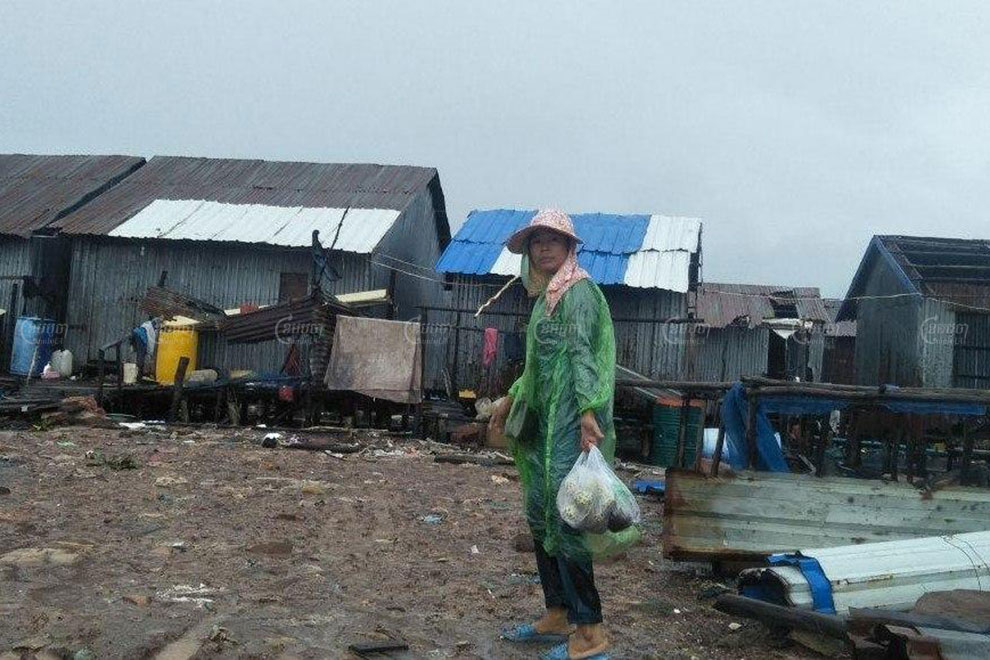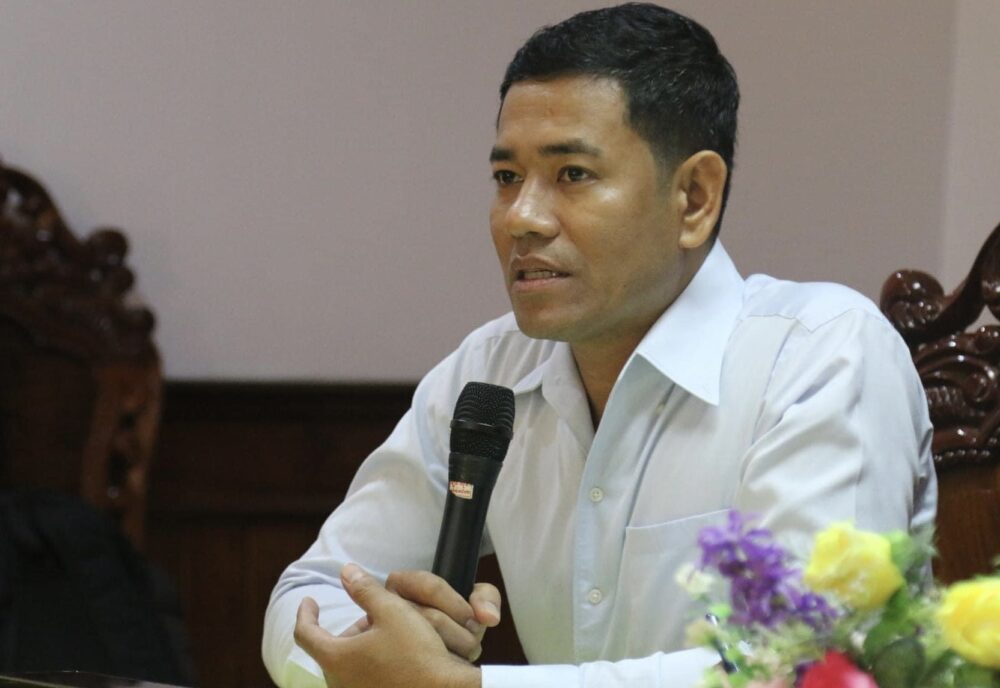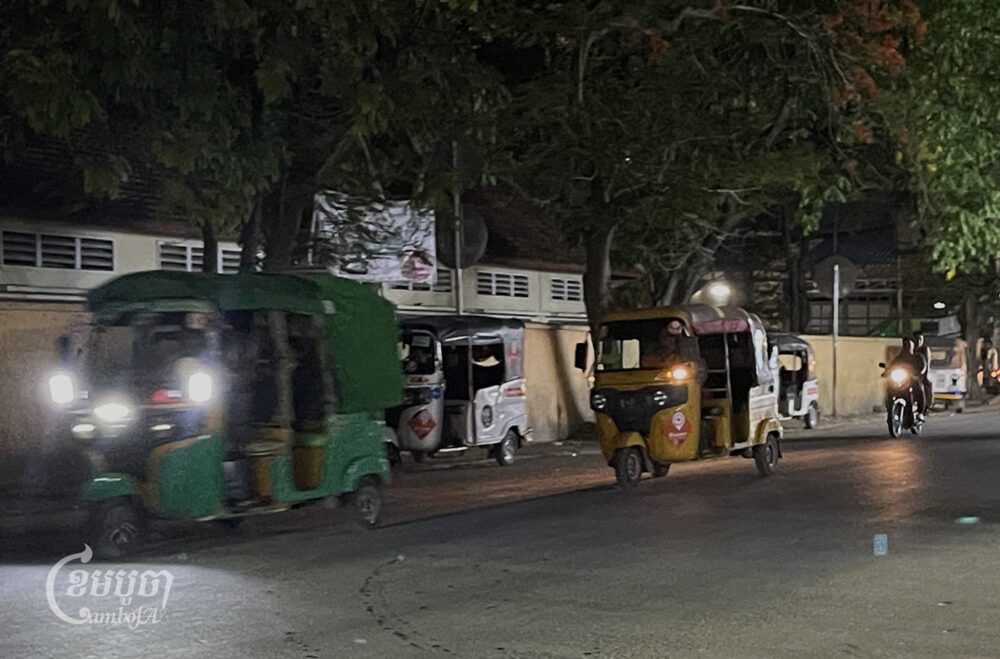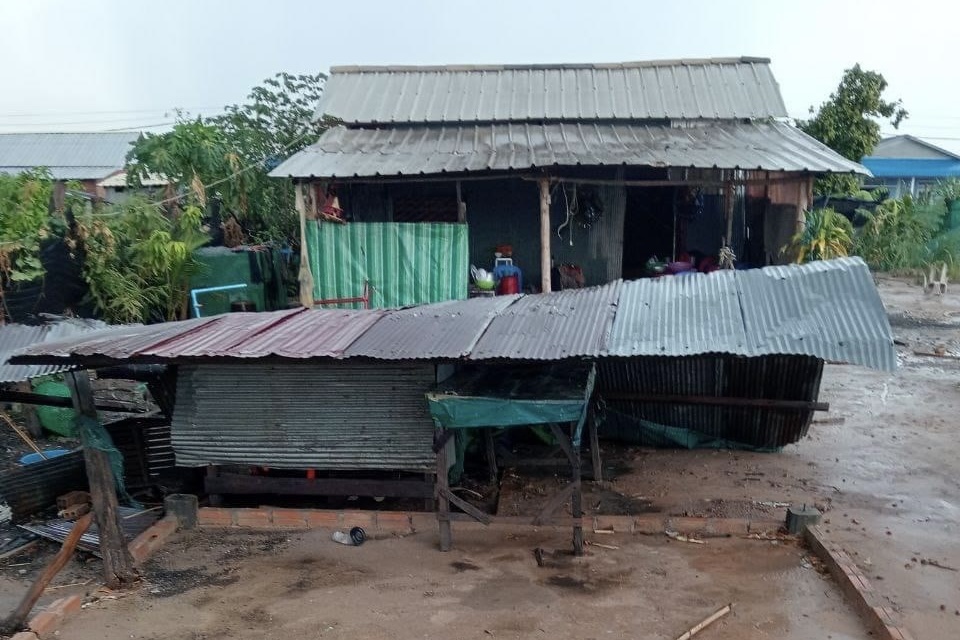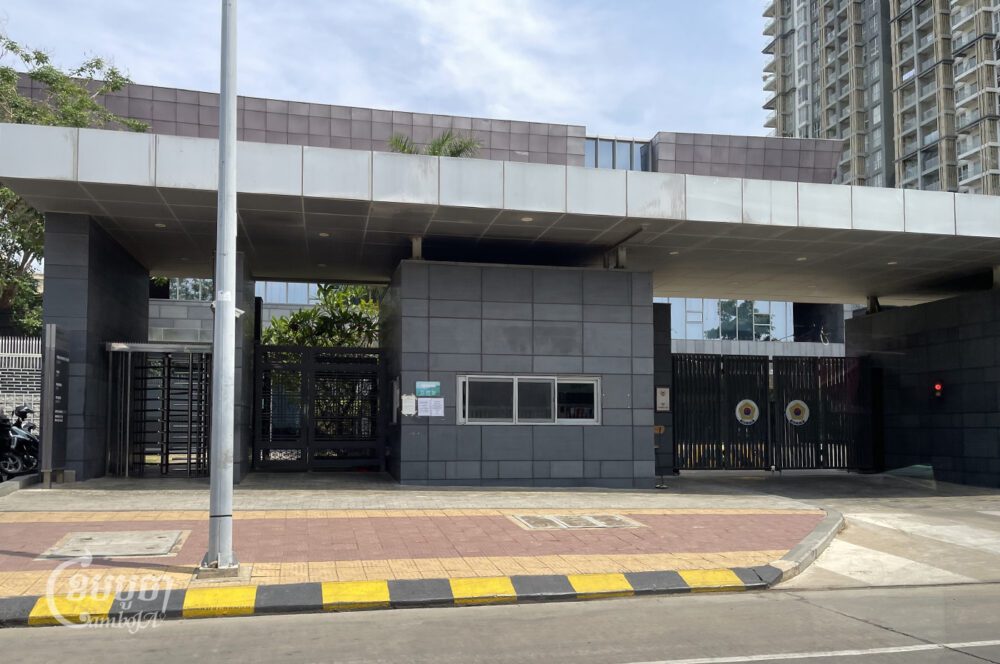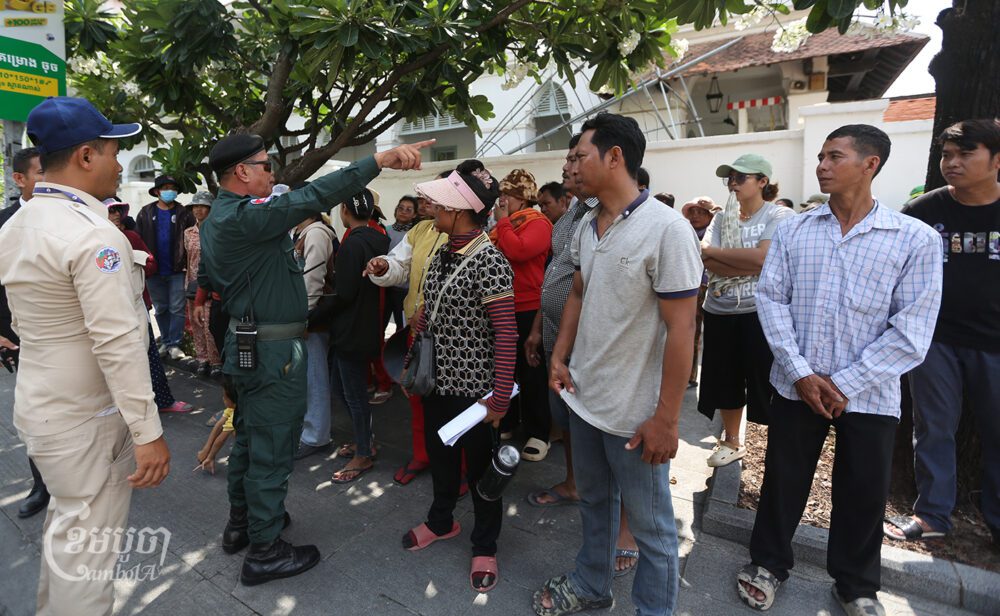Prey Nop district, Preah Sihanouk province – Before leaving her village on the morning of October 12, a 41-year-old fisherwoman was chatting with her neighbors over concerns that they could be forcibly evicted from their land without compensation.
Sitting in a small wooden house with a group of other fishing families near Poyklork lake in Ong Krao village, Kim Chanthy said she was worried she would be forced to leave her home after representatives of a land development company paid a visit to the village earlier this month.
“They [the company representatives] have just said that they will provide compensation, and they also said that this land belongs to the company,” she said.
“We don’t know exactly where the land swap is or how much money they will be offering,” Chanthy continued, saying she was concerned the compensation provided would not be fair.
She and her husband Lach Channa have three sons and two daughters, and rely on the crabs and shrimp they catch in the lake to make a living, earning $25 for every 5 kilograms of crustaceans.
She said she and the other residents of Ong Krao village have been living along the edge of the mangrove forest on Poyklork lake in Ream commune for more than 20 years.
She said that the company representatives who paid a visit to the village recently didn’t mention the name of the company they work for or reveal any details of the planned project.
“We are worried that they will evict us all,” Chanthy said, adding that local authorities had not taken any action to quell villagers’ concerns.
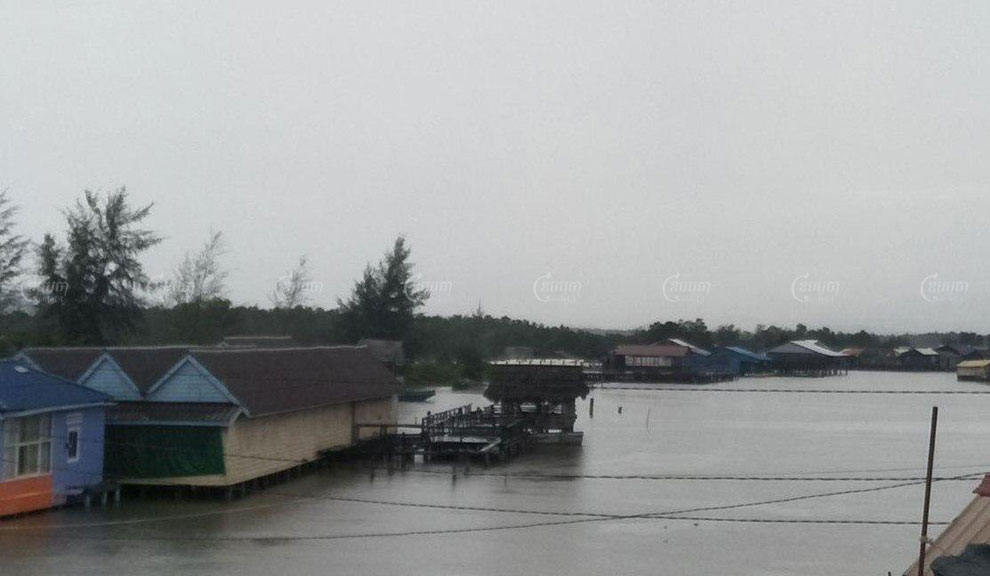
The more than 50 fishing families that make up the village are uncertain whether they would be given land, or simply provided with monetary compensation and told to move away.
The development project is part-owned by a relative of tycoon Ly Yong Phat who recently received the rights to the land from the government, which awarded The Premier Land Company a 50-year lease to develop a tourist site in Preah Sihanouk province.
According to a government sub-decree issued in June, 600 hectares of land in Prey Nop district that was listed as flooded forest land and forest cover in 2002 was recently converted to state-private land and granted to the wealthy owners of The Premier Land Company.
“[The government] grants the ownership of 600 hectares of land … to Oknha Seng Nhak and Ly Arphorn, as owner The Premiere Land,” reads a sub-decree signed June 2020 by Prime Minister Hun Sen.
Seng Nhak, who is director general of The Premier Land and Ly Yong Phat’s son-in-law, could not be reached for comment.
Another Ong Krao village resident, Heam Poeun, 41, said he was very worried about losing his livelihood if evicted, as he has been fishing in the area for more than 10 years.
“We are afraid because we don’t have any land to make a living,” he said, adding that he currently supports his family by earning between $100 and $200 per month catching fish at the edge of the mangrove forest.
Kim Dina, 40, also a fisherman of more than 10 years, called on the company to provide a suitable compensation before evicting villagers.
“We are afraid because we are relying on fishing and we don’t have land to cultivate paddy rice, so we have been living on state land,” he said.
He noted that the village residents are not opposed to the development project, but want to have security for their futures.
“We do not demand a high compensation, it just has to be a suitable resolution that will allow us to survive,” Dina said.
Ong Krao Village Chief Kong Buntry said a company connected to Ly Yong Phat had already bought some plots of land from villagers in the now-privatized area, noting that authorities are not involved.
“The company [representatives] come to buy villagers’ land,” he said. “They are not doing anything against the law.”
Buntry said that there are 59 households living on the edge of the mangrove lake inside the development area, but that he had not heard any details regarding possible compensation for the families.
“Right now, we don’t know whether the company will provide compensation or a land swap,” he said, adding that company representatives are currently assessing the impact on families, and that some in other villages had already sold their land.
Ream Commune Chief Lin Sarin said that some 100 families will have to leave the site of the new development, noting that company representatives are working with the families who will be affected.
“We don’t know how many families [will have to leave] because the company has been meeting with them,” he said.
Sarin added that some families had bought land and migrated to the area, and that they are not local villagers.
The locals, he said, are happy about the development as it will bring new jobs to the area.
Reached October 12, Ly Yong Phat said that he didn’t know about the investment behind the 600-hectare plot development because it belongs to his son-in-law’s company.
“I don’t know about the investment because it is my son-in-law’s business,” he said.
“There is a small lake where we will offer compensation and in other places, we have bought the land from villagers and are owners of the land,” Yong Phat said.
Agriculture Minister Veng Sakhon confirmed that the government had decided to privatize the land on a 50-year lease.
“There is no impact to the villagers because mostly, the company has already resolved the problem and done a social assessment,” he said.
“Right now, we are carefully finding a solution,” Sakhon added.
Sreng Vanly, provincial coordinator at rights group Licadho, said he hoped that the company would be transparent and fair in compensating poor families who rely on the land to make a living.
He said that in the past, the government’s social impact assessments did not properly account for the effects that land developments would have on villagers.
“We hope that the company will resolve its problems or set aside land for them to avoid forcible eviction,” Vanly said.
“It will affect their rights if the government and company do not resolve the problem,” he said.
Ong Krao resident Chanthy said she would be satisfied if the government and company settle the issue by compensating the families based on the market price of their land.
“Our challenge right now is waiting for a resolution,” she said.


